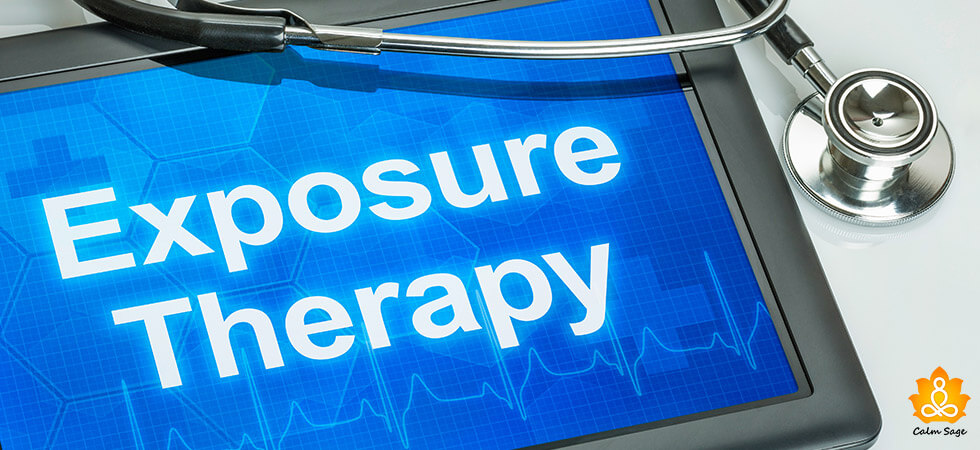PTSD & Anger: Exploring The Link And What to Do to Tame PTSD Anger

We live in the real world, where danger is around every corner. It’s a world where the simplest stressor of ours can trigger our flight-or-fight response, and a raised voice can feel like a prelude to violence.
This happens in the real world; making it more real for people living with post-traumatic stress disorder or PTSD. While PTSD is often associated with flashbacks of wars and nightmares, another symptom of PTSD remains undetected – anger.
PTSD anger can be a simmering undercurrent, a constant irritating variable, or even explosive rage. But what is the exact link between PTSD and anger? How does PTSD anger affect those who live with this disorder?
Today, we’re exploring the curious relationship between PTSD and anger, its causes, how it can influence different aspects of our lives, and how to practically manage PTSD anger.
Relation: PTSD in Men: Understanding the Hidden PTSD Symptoms in Men
The Link Between PTSD & Anger
The experience of trauma leaves long-lasting, if not deep, scars on our psyche. These experiences rewire the brain’s threat detection, making someone with PTSD hyper alert and easily startled as a squirrel. This constant state of hyperalertness can manifest as chronic anger or chronic rage, a hair-trigger response to any perceived threats.
Factors that can contribute to this curious link between PTSD and anger can include;
1. Frustration:
Trauma involves feelings of helplessness and injustice. Survivors of trauma might get angry at the one who caused their suffering, the situation itself, or even themselves. This unresolved anger can fester over time and spill over into their everyday conversations.
2. Emotional Instability:
PTSD also disrupts the ability to regulate emotions, making it harder for anyone to manage anger constructively. People with PTSD might struggle to express their anger properly and have difficulty calming themselves once triggered.
3. Hyperarousal:
PTSD symptoms like hyperalertness and trouble sleeping can cause you to live in a constant state of physical and emotional tension. This tension can manifest, often, as irritability and anger.
4. Avoidance Coping:
Another factor that can trigger anger in PTSD is that people with PTSD avoid situations that might trigger their traumatic memories. Because of this avoidance, there could be a slow build-up of frustration and anger, which can erupt unexpectedly.
While anger is a common, if not hidden, symptom of PTSD, it does not automatically equate to violence and abuse. Unmanaged anger can increase the risk of aggressive behavior, especially when combined with other factors such as substance abuse or a history of violent acts.
We need to understand the difference between healthy anger – which can be a motivator for change – and destructive anger – one that causes aggression.
When we talk about combat veterans, it can be safe to say that veterans are at a particularly high risk of developing PTSD anger. Witnessing acts of violence, experiencing near-death situations, and the constant state of danger can take a toll on anyone’s mental health.
Military training often highlights suppressing emotions, which can make it harder for combat veterans to express their anger constructively. Moreover, the reintegration period can be challenging enough, leading to feelings of frustration and high anger issues.
Related: This Is What Traumatic Shock Does to You [And How to Cope]
Can Anger Worsen PTSD?
Yes, chronic anger cannot only disrupt your sleep, but it can play a role in worsening your anxiety, making it harder to cope with intrusive memories and flashbacks. This creates a vicious cycle where anger worsens the symptoms of PTSD, and those symptoms, in turn, fuel more anger. See the pattern? The cycle keeps fueling each other!
We need to understand that anger co-occurs with other PTSD symptoms too, creating a web of emotional distress.
The feelings of hopelessness and helplessness that are typically associated with trauma can cause depression symptoms, which can only fuel irritability and anger issues.
Moreover, the constant state of hyperarousal and fear that accompanies PTSD can manifest as GAD – Generalized Anxiety Disorder – which can worsen irritability and make it harder to tame your anger. When you face trouble controlling your anger, it can harm your relationships and cause you to isolate yourself. This social isolation can only worsen PTSD and anger symptoms.
PTSD And Anger in Relationships
While anger can leave long-lasting emotional wounds on our psyche, it can do similar damage to our relationships. Uncontrolled anger outbursts can create a distance and even lead to abuse in relationships. People living with PTSD can face more issues in relationships, especially where PTSD anger is concerned.
In a relationship, you may have difficulty managing anger during conflicts and arguments, causing hurt feelings. Anger can make it challenging for anyone to communicate effectively and express their needs properly. Loved ones of people with PTSD anger might even become fearful of triggering any potential anger outbursts, creating a tense and unhealthy relationship.
When Does PTSD Anger Become An Issue?
While anger is normal, there are signs that PTSD anger is becoming more serious than just a simple case of misplaced anger. Here are some signs to watch out for;
- You frequently lose control of your anger
- You are engaging more in physical aggression such as hitting, throwing objects, etc.
- You are engaging in risky behaviors such as substance abuse or self-harm
- Your relationships are taking a toll
- You can’t manage or cope with stress anymore
- You are getting more irritable and resentful
- Your anger is more than what a situation may warrant
How to Tame PTSD Anger?
If you’re struggling with PTSD anger, then here are some practical tips you can follow to manage and tame your anger;
1. Identify Your Triggers
The first thing you need to do is figure out what is causing your anger. Is there someone specific that causes you to feel aggression? Is a situation causing your anger to rise? Knowing what might be causing your anger can help you manage it.
2. Rely on Relaxation Techniques
Another way to manage your anger is to practice techniques such as deep breathing, progressive muscle relaxation (PMR), and mindfulness meditation. These techniques can help calm your body and mind during moments of stress and anger outbursts.
3. Work on Your Communication
You can also learn to work on expressing your anger assertively, rather than aggressively. Get it? Knowing how to communicate your feelings of anger, frustration, and irritation in a calm yet assertive way can help you work through conflicts that occur in your relationships.
4. Move Your Body
Another way to calm your PTSD anger is to engage in physical activity. Exercise can be a great way to release pent-up frustration and anger in your body in the most constructive way possible. Moving your body also allows a release of endorphins and other feel-good hormones that can calm your mind.
5. Take Care of Yourself
Another way to manage your PTSD anger and rage attacks is to take care of your needs. Listen to your body – get enough sleep, eat a well-balanced diet, and engage in activities that make you feel happy and calm. Doing these little things can support your well-being – physical and mental.
Can PTSD Anger Be Treated?
If you’re still struggling to manage PTSD anger and rage on your own, then you can reach out to a professional for help. Here are some options to treat PTSD anger;
1. Cognitive-behavioral therapy (CBT)
CBT is a therapeutic approach that can help you identify and change negative thought patterns that might be contributing to your anger and replace them with positive ones.
2. Anger management therapy
Another approach to treating PTSD anger is through anger management therapy. This therapy helps you learn how to identify anger triggers, express anger constructively, and develop better anger management skills.
3. Eye movement desensitization and reprocessing (EMDR)
EMDR is a therapeutic approach that helps reprocess traumatic memories, potentially reducing anger associated with the trauma you’re experiencing. EMDR can be considered one of the best therapy approaches to treat trauma and PTSD.
4. PTSD Medications
If the symptoms of PTSD anger are severe, then a professional might prescribe PTSD anger medications to manage symptoms of anxiety, depression, and any other disorders that might be contributing to anger issues in PTSD.
It’s important to speak to a professional before taking any medications. Many medications might have side effects that can worsen your current or any pre-existing condition. Do not take any medications that are not prescribed to you by your doctor.
Wrap Up…
The link between PTSD and anger is quite complicated and can have a significant impact on your life, well-being, and health. Understanding the causes of PTSD anger, watching out for any warning signs, and practicing effective coping techniques can help you manage and tame your anger and live healthier lives.
Remember, if you need it, support is just a click away. With the right help, support, and tools, you can break free from the tight grip of PTSD, anger, and rage, and find peace amid it all.
I hope this article helped you understand what is PTSD anger, what causes it, and how to tame PTSD anger issues. Let us know your thoughts in the comments below.
Until next time, take care!




















